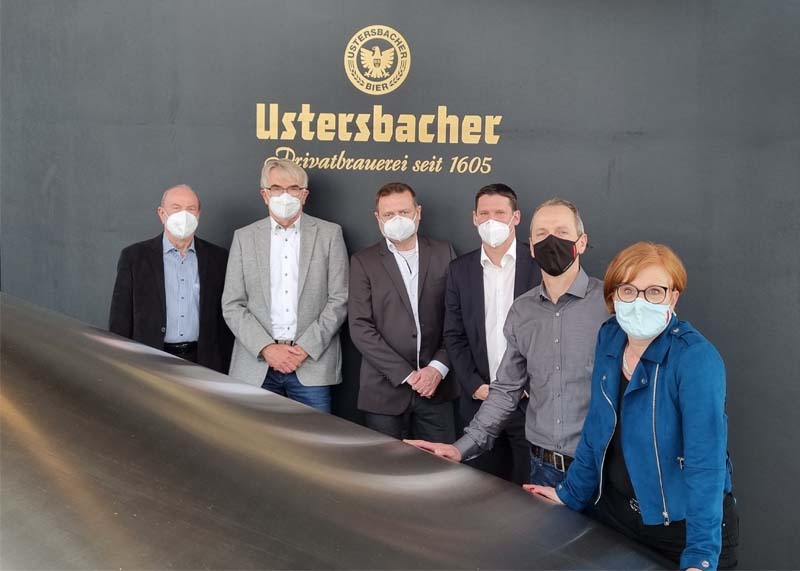Upcycling residual materials from the brewing process right through to CO2 neutrality: Steinecker uses brewer’s grains and yeast as sources of protein and energy

- One of the latest Brewnomic modules – A holistically conceived solution for material upcycling of residual materials from the brewing process and using them for energy recovery is examined and optimised in a pilot installation as part of a Steinecker development project.
- One of the substances that can be extracted from brewer’s grains is protein, for which we are currently seeing very substantial demand not only in the food and beverage industries, but also from producers of food supplements or cosmetics.
- Once the valuable constituents have been separated, the biomass remaining is much easier to process in a biogas plant with the current state of the art than it would be without pretreatment.
For most breweries, brewer’s grains are just what’s left over after brewing and often merely used as animal feed. In some cases, breweries even have to pay for their disposal. But in actual fact much, much more is hiding in the residual materials from the brewing process. They offer not only rewarding options in terms of sustainability but also some profitable extra business for breweries. A project pursued jointly by Steinecker and the two development specialists Prof. Waldemar Reule and Dr. Rainer Gottschalk demonstrates how this can be successfully managed. The concept they have developed is now for the first time translated into shopfloor reality at the Ustersbacher Brauerei in Bavaria.
From residual to raw material
Spent grains and yeast are residual materials that contain protein. And it’s precisely this protein that is now taking centre stage. Whereas the Brewnomic has so far focused only on using residual materials for energy recovery, the project team has meanwhile developed a process for material recovery. This process consists of three steps:
- First, proteins are extracted from the residual materials. This is done in a three-vessel system, similar to the concept of the CombiCube brewhouse. Following dispersion and hydrolysis, protein is separated by means of membrane filtration.
- In the second step, the remaining biomass is acidified. After that mineral fertiliser is obtained by means of an ion exchanger.
- This is followed by energy recovery in the form of biogas production. The brewery’s wastewater is also added and purified here.
Protein – highly sought after on the market
Protein extraction proves particularly profitable for breweries. Thanks to the trends towards a sustainable, healthful and vegan lifestyle, demand for plant-based protein sources is rising in the manufacturing industry. Potential buyers of this highly sought-after raw material include not only dairies and food-processing plants, but also producers of food supplements and the cosmetics industry. Moreover, selling the mineral fertiliser and the savings achieved by feeding in biogas also pay off for the brewery. So the sum of annual revenues results in a return on investment (ROI) of just a few years, which is substantially shorter than that of a classical biogas plant where the spent grains are used only for energy recovery.
First-time use in the Ustersbacher Brauerei
The Ustersbacher Brauerei in Bavaria will be the first to use the concept developed for spent-grains upcycling in shopfloor reality. The preconditions are ideal: “Over the past ten years, we’ve already implemented a number of measures. With each of these, we’ve taken one step at a time towards achieving our goal: to become an energy-self-sufficient brewery using the Brewnomic concept. So it is only logical that our aim now is to also make maximally sustainable use of the residual materials from the brewing process,” explains brewery owner and manager Stephanie Schmid.
Download
